Meet our Fellows
Vasculitis Fellows
In just a few short years, VCRC-VF Fellowships have provided advanced training to over 25 physician-researchers. Each year new fellows are added to this total; increasing the number of highly qualified physicians and researchers who can diagnose, treat, and improve the lives of people living with vasculitis.

2024-2025 VCRC-VF Fellows

Sam Falde, MD
2024-2025 VCRC-VF Fellow
Mayo Clinic, Rochester, Minnesota
Fellowship Focus: Improving treatment outcomes by refining classification criteria for ANCA-associated vasculitis.

Ruoning Ni, MD
2024-2025 VCRC-VF Fellow
Cleveland Clinic, Cleveland, Ohio
Fellowship Focus: Gaining skills, experience, and expertise to guide her in opening a vasculitis center in Iowa.
2022-2024 VCRC-VF Fellows

Mohanad M. Elfishawi, MBBCh, MS
2022-2023 VCRC-VF Fellow
Mayo Clinic College of Medicine and Science, Rochester, Minnesota
Research Interests: Investigating metabolic risk factors for Giant Cell Arteritis (GCA) and predicting the risk of patient’s developing an aortic aneurysm or dissection (when a tear occurs in the inner layer of the aorta) with GCA.

Mats Junek, MD, MSc
2023-2024 VCRC-VF Fellow
McMaster University
Research Interests: Building clinical models to predict how likely people are to relapse. These clinical models will help people with vasculitis and their healthcare team create a maintenance treatment plan that balances their risk for relapse against medication side effects.

Marta Casal Moura, MD, MSc, MSPH
2022-2023 VCRC-VF Fellow
Vasculitis Clinic, Division of Rheumatology Mayo Clinic Rochester, Minnesota
Research Interests: Predicting which patients with Anca-Associated Vasculitis (AAV) glomerulonephritis (kidney inflammation) will respond well to treatment with plasma exchange and finding predictors of relapse in Giant Cell Arteritis (GCA).
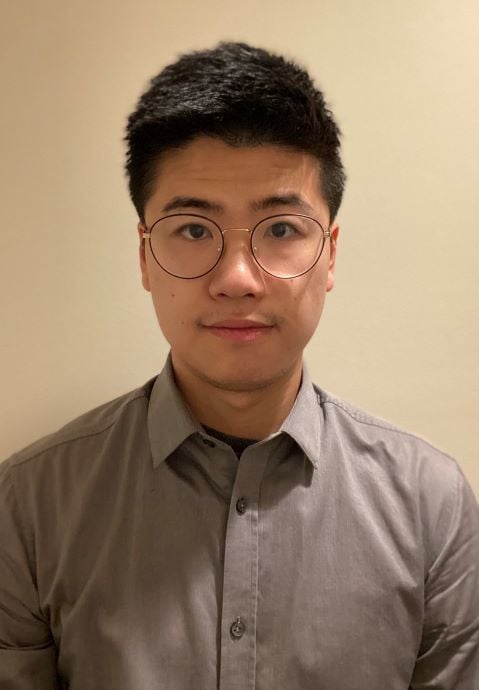
Roger Yang, MD
2023-2024 VCRC-VF Fellow
Penn Vasculitis Center, Division of Rheumatology University of Pennsylvania-Philadelphia
Research Interests: Finding effective sinonasal treatments for Granulomatosis with Polyangiitis (GPA) with sinonasal involvement and immunomodulatory treatments for Relapsing Polychondritis.

Gözde Kübra Yardimci, MD
2022-2023 VCRC-VF Fellow
Mount Sinai Hospital University of Toronto Ontario, Canada
Research Interest: Understanding and preventing severe ischemic events (severe lack of blood flow to organs and/or tissue) in Takayasu arteritis and Behçet’s syndrome.

2021-2022 VCRC-VF Fellow
Jessica Bloom, MD University of Colorado-Denver
Research Interests: Improving outcomes in pediatric vasculitis and expanding pediatric vasculitis research.
Jessica Bloom, MD, MSCS, has been awarded the 2021 Vasculitis Clinical Research Consortium (VCRC)-Vasculitis Foundation (VF) Fellowship. Dr. Bloom is currently an Assistant Professor of Pediatrics at the University of Colorado-Denver, Attending Physician in Pediatric Rheumatology at Children’s Hospital Colorado in Aurora, and the first pediatric rheumatologist in the VCRC-VF Fellowship program. Her primary clinical and research interests center around anti-neutrophil cytoplasmic antibody-associated vasculitis (AAV) in children with the goal of improving outcomes in pediatric disease. Dr. Bloom is the latest of more than 20 fellows who have been supported by the VCRC-VF Fellowship Program.
“Vasculitis is an underserved area within pediatric rheumatology, both in research and clinical expertise, despite its significant morbidity and mortality in children,” Dr. Bloom explained. “It’s well known that children have different patterns of organ involvement compared with adults and are affected during prime stages of physical and psychosocial development. However, conducting research and clinical care for rare diseases is extremely challenging in children without collaboration and adequate exposure. As such, I saw the opportunity to work with a community of investigators familiar with the methodology, data, and clinical landscape through the VCRC-VF Fellowship as invaluable for my career,” Dr. Bloom said.
“Research in childhood onset vasculitis is an area of high need,” added Robert Fuhlbrigge, MD, PhD, and Dr. Bloom’s mentor in the fellowship program. “There is very little pediatric-specific information regarding diagnosis, treatment guidelines or long-term outcomes, and very few providers with specialty training in these conditions.” Dr. Fuhlbrigge is also a Professor of Pediatrics at the University of Colorado-Denver and Section Head of Rheumatology at Children’s Hospital Colorado.
Over the next two years in the fellowship, Dr. Bloom will use the VCRC to assess the associations between age at disease onset and clinical manifestations, management, and outcomes for each AAV subtype. She will analyze Vasculitis Patient-Powered Research Network (VPPRN) data in a similar manner to include patient-reported outcomes. “While few pediatric patients exist in the VCRC dataset, comparison of young and older adult populations will shed light on the impact of age at disease onset and may have implications for children as they progress into adulthood,” Dr. Bloom said. Her hope is to expand pediatric patient enrollment within the VPPRN by working with the organization to increase pediatric provider and patient engagement both nationally and internationally. “In doing so, we will work to address which patient-reported outcome measures are most relevant and appropriate for children. Expansion of the pediatric dataset within the VPPRN will allow development of more significant and relevant studies on the impact of vasculitis in children and young adults,” she said.
Dr. Bloom is excited to be the inaugural pediatric rheumatologist in the VCRC-VF Fellowship program. “Due to the limited number of pediatric rheumatologists in the United States, and specifically in the Mountain West, our patient catchment area spans seven states, providing broad exposure to children with vasculitis and other rare rheumatologic diseases,” Dr. Bloom said. “I will create my own vasculitis clinic and also work with Dr. Michael Wechsler, a recognized world expert in eosinophilic granulomatosis polyangiitis (EGPA), at National Jewish Health to evaluate patients in the VCRC EGPA Longitudinal Study.” Dr. Bloom will also work with local radiologists, adult rheumatologists, and interventional cardiologists to gain clinical expertise.
“The VCRC Steering Committee was delighted to appoint Dr. Bloom as a VCRC-VF fellow,” said Peter A. Merkel, Professor of Medicine and Epidemiology at the University of Pennsylvania and Principal Investigator of the VCRC. “She brings a much-needed renewed emphasis to clinical research on children with vasculitis within the VCRC and the VPPRN. Dr. Bloom is already busy with research within the VCRC and VPPRN and I am delighted to be collaborating with her on these projects.”
“Through this fellowship, I hope to gain the expertise necessary to decrease ambiguities in pediatric vasculitis care through clinical outcomes research,” Dr. Bloom said. “Along with Dr. Fuhlbrigge, I am very fortunate to work with such inspiring and dedicated mentors, including Dr. Merkel and Dr. Wechsler.”
“I am confident that Dr. Bloom’s activities supported by this fellowship will provide impactful data for the rheumatology community at large and help to fill the critical need for Pediatric Rheumatology investigators trained in clinical research methodologies and the treatment of vasculitis in children,” Dr. Fuhlbrigge said.
As she embarks on her academic career, Dr. Bloom would like to become a clinical expert and collaborative investigator in pediatric vasculitis. “I intend to advance the mission of the VF by increasing the presence of pediatrics within vasculitis research nationally and enhance their connections with the Childhood Arthritis and Rheumatology Research Alliance and pediatric rheumatology community,” she noted.
 2020-2021 VCRC-VF Fellow
2020-2021 VCRC-VF Fellow
Kinanah Yaseen, MD
Cleveland Clinic, Cleveland, Ohio
Research Interests: Understanding long-term outcomes of immunosupressive treatment in IgA vasculitis.
Kinanah Yaseen, MD, was awarded the 2020 Vasculitis Clinical Research Consortium (VCRC)-Vasculitis Foundation (VF) Fellowship. She is currently a junior faculty member in the Department of Rheumatic and Immunologic Diseases at Cleveland Clinic. Her interests involve all forms of vasculitis, especially small vessel vasculitis including granulomatosis with polyangiitis (GPA), microscopic polyangiitis, eosinophilic granulomatosis with polyangiitis, IgA vasculitis, cutaneous vasculitis, and drug-induced vasculitis.
“The practice of vasculitis combines the best aspects of medicine,” Dr. Yaseen said. “It is challenging and intriguing in terms of diagnosis and therapy because of its multi-system approach.” She also finds it motivating and rewarding when it comes to leaving a positive impact on someone’s life.
Dr. Yaseen’s research has looked at long-term renal outcomes in hydralazine-induced vasculitis. Hydralazine is a commonly used drug for treatment of high blood pressure and it has been reported to cause a medication-induced form of anti-neutrophil cytoplasmic antibody vasculitis. In another study, she evaluated the correlation between patient-reported outcomes and disease activity measures in patients with GPA. She was also co-investigator in a study on recurrent rate of venous thromboembolic events in patients with GPA.
Through the support of the VCRC-VF and her mentors, Dr. Yaseen feels her knowledge and skills in managing different forms of vasculitides expanded dramatically. She also gained an appreciation of the vasculitis literature. “I was introduced to a wide variety of diagnostic modalities and different ways of treating vasculitis of all levels of severity in the inpatient and outpatient settings,” she said. “And being part of a multidisciplinary team has provided a great learning opportunity.”
Originally from Syria, Dr. Yaseen earned her medical degree from the University of Tishreen School of Medicine in 2010. After moving to the US, she began her three-year internal medicine training at Fairview Hospital, Cleveland Clinic, which she completed in 2018. She was a chief resident during her last year of training. After completing a rheumatology fellowship at Cleveland Clinic in 2020 she began a one-year clinical vasculitis fellowship at the Cleveland Center for Vasculitis Care and Research during which, she was awarded a VCRC-VF fellowship.
“I will continue to be engaged in managing and treating patients with different vasculitides in addition to teaching general practitioners about recognizing, diagnosing and caring for patients with systemic vasculitis,” Dr. Yaseen said. “In terms of future research, I have a special interest in IgA vasculitis and plan on conducting a study to look at long-term outcomes with different immunosuppressive therapies.” It is Dr. Yaseen’s long-term goal to join the faculty at Cleveland Clinic Abu Dhabi. She has initiated a vasculitis journal club with colleagues in that region to enhance discussion about the latest innovations in vasculitis.
Carol Langford, MD, MHS, FACP, served as the director of Dr. Yaseen’s vasculitis fellowship with mentorship from Rula Hajj-Ali, MD, Alexandra Villa-Forte, MD, MPH, and other members of the Cleveland Clinic vasculitis center. “It was a great pleasure for us to train Dr. Yaseen during her vasculitis fellowship” Dr. Langford said. “Her interest caring for people with vasculitis was evident at a very early point in her rheumatology training. We have been grateful for the support that Dr. Yaseen received from the VCRC-VF during her vasculitis fellowship. This support is so critical to advancing our collective mission to develop experts who will go onto provide care to those with vasculitis and become valuable partners in research efforts. Our team at Cleveland Clinic has great confidence that Dr. Yaseen will be a wonderful contributor to the vasculitis community and we look forward to having her as a colleague for many years to come.”

Introducing Our 2019-2020 VCRC-VF Fellow
Alvise Berti, MD
Santa Chiara Hospital, University of Trento, Italy
Alvise Berti, MD, began his work in vasculitis while he was a medical student at Vita-Salute San Raffaele University in Milan, Italy. At the time, Dr. Berti recognized that vasculitis was not very well understood, and being both curious and motivated to further explore this group of diseases, he realized that he wanted to become a researcher in this field.
During his clinical specialty training he moved to Mayo Clinic in Rochester, Minnesota, for a one-year fellowship in 2016-2017, where he worked under the supervision of Ulrich Specks, MD, and in collaboration with Eric Matteson, MD, and Kenneth Warrington, MD. Back in Italy, he finished his clinical fellowship and wanted to pursue another year at Mayo Clinic in 2019-2020 to improve his knowledge and contribute to research in vasculitis.
Dr. Berti officially started the VCRC-VF fellowship in November 2019 because he felt it offered the best program for conducting vasculitis-oriented research. The program allowed him to train with experienced mentors as well as participate in clinical research activities. “The fellowship provides young physicians with a valuable opportunity to enrich their professional experience,” Dr. Berti noted. “I’m grateful to the VCRC-VF for the opportunity and also to my mentor, Dr. Specks, for the support and continuous guidance I received.” Dr. Specks is a consultant in the Division of Pulmonary and Critical Care Medicine, Department of Internal Medicine at Mayo Clinic College of Medicine and Science in Rochester, Minnesota, as well as a professor of medicine.
“My contribution to the research in vasculitis aimed to clarify the pathophysiology of anti-neutrophil cytoplasmic antibody (ANCA)-associated vasculitis (AAV),” Dr. Berti explained. AAV is a group of autoimmune diseases (granulomatosis with polyangiitis (GPA), eosinophilic granulomatosis with polyangiitis [EGPA], and microscopic polyangiitis) that causes blood vessels to swell. The vessels involved in AAV are typically capillaries, arterioles, and venules but small arteries and veins may also be affected.
“We wanted to elucidate the mechanisms by which the antigen-specific B cells, i.e., those cells that produce the ANCAs that trigger the disease, break the immunological tolerance in AAV patients, starting the disease process,” continued Dr. Berti. “These findings might have implications for disease management, i.e., to guide current anti B cell treatment, and potentially for future development of new personalized immunotherapy for AAV.”
Dr. Berti was also involved in more clinical studies, with immediate implications for clinicians and patients. “The clinical research I have done focused on EGPA respiratory manifestations, specifically on severe asthma, a clinical manifestation present in almost 100% of the patients with EGPA that is usually poorly controlled by the immunosuppressive treatment, even after years from the vasculitis diagnosis, an aspect still overlooked of EGPA,” Dr. Berti added.
“The VCRC-VF Vasculitis fellowship has been instrumental for Dr. Berti to extend and complete his already widely quoted studies conducted at Mayo Clinic on the epidemiology and biomarkers of ANCA-associated vasculitis, asthma in EGPA, and most recently the mechanisms of loss of tolerance to PR3 in patients with PR3-ANCA-associated vasculitis (mostly GPA),” Dr. Specks said.
Dr. Berti is currently working as a clinician and researcher in vasculitis in his home country of Italy and is a consultant in the Rheumatology Department at Santa Chiara Regional Hospital in Trento. “I hope to continue to actively collaborate with the VCRC-VF while developing research activity on vasculitis in the center where I’m working,” he said. Dr. Berti is also near completing his PhD in Molecular Biosciences at the University of Trento.
“It has been a true privilege to mentor Dr. Berti on his journey to become an independent clinician-investigator devoted to unraveling the mysteries of the immune system as they lead to the development of ANCA-associated vasculitis and offer opportunities for novel targeted treatment options,” said Dr. Specks.
“Beyond providing support for specific research studies, the VCRC-VF Vasculitis Fellowship has provided Dr. Berti with invaluable networking opportunities that will continue to strengthen the impact of the next generation of vasculitis researchers and clinical experts in Northern Italy and beyond for the benefit of patients with vasculitis. With young investigators like Dr. Berti coming through the ranks, the future for patients with vasculitis is bright, and the Vasculitis Foundation and VCRC need to be commended for paving the way.”
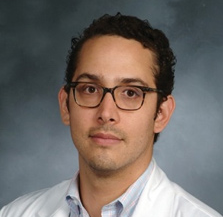 Introducing our 2019-2020 VCRC-VF Fellow
Introducing our 2019-2020 VCRC-VF Fellow
Sebastian E. Sattui, MD
Hospital for Special Surgery, New York City, New York
It was during a medical clerkship that Sebastian Sattui, MD, first recognized the complexity of vasculitis, and the profound impact the disease has on patients’ lives.
He had encountered a patient with EGPA (eosinophilic granulomatosis with polyangiitis) for the first time. “I will always remember the patient’s long list of symptoms, the medical mystery he had represented so far, and the certainty with which the attending rheumatologist made the diagnosis, just after listening to the patient and checking his chart,” recalled Dr. Sattui, a rheumatology fellow at the Hospital for Special Surgery in New York City.
That and other early experiences sparked an interest in vasculitis that has fueled Dr. Sattui’s medical career and the research he will conduct as the recipient of the 2019 VCRC-VF Fellowship Award.
The Vasculitis Clinical Research Consortium (VCRC)-Vasculitis Foundation (VF) Fellowship is a mentored training program of up to two years for physician-investigators who have a strong interest in vasculitis and wish to pursue specialized training in patient-oriented clinical investigation.
The VF contributes $50,000 in matching funds to the fellowship, made possible through donors and proceeds from the annual Chicagoland Vasculitis Golf Tournament. Organized by now-retired VF board member Jeffrey Fishbein, PsyD, and his extended family, the event has raised more than $500,000 since 2014, with proceeds going to the VCRC-VF Fellowship Program (and to the opening of the Vasculitis Clinical Research Program at Northwestern University, Illinois, three years ago).
“The VCRC-VF is an important fellowship program that has enabled young and talented physicians to train in the area of vasculitis,” said Dr. Fishbein. “The tournament has been a proud supporter of this program since we began this event five years ago.”
During the two-year fellowship, which begins in July 2019, Dr. Sattui will continue work on two research projects. The first project is analyzing the prevalence and impact of frailty in patients with polymyalgia rheumatica (PMR) and giant cell arteritis (GCA), which often strike people over the age of 50.
“Frailty is a process that can affect our ability to bounce back after an illness or other stressful events, such as a fall or an infection, as well as our ability to live independently,” said Dr. Sattui. “I think frailty is an unexplored outcome that needs to be further studied in PMR and GCA patients, since it can impact both quality of life and clinical outcomes.”
Dr. Sattui’s second project involves assessing a new biomarker, mitochondrial DNA, as a measure of disease activity in patients with ANCA vasculitis. (Mitochondrial DNA is a genetic material that when detected in the blood, can be used as a marker of inflammation.)
“We already have a small pilot study where we have shown some differences in the levels of this biomarker in patients with active disease and remission.” During the fellowship, Dr. Sattui will explore the potential clinical use of this biomarker, with the goal of potentially identifying changes in disease activity prior to symptoms and allowing prompt treatment.
Dr. Sattui expressed gratitude for the Fellowship, to his mentor Robert Spiera, MD, his sponsoring institution—the Hospital for Special Surgery (HSS)—and the HSS Vasculitis, Scleroderma and Myositis Center, where the fellowship will take place.
“The Vasculitis Foundation is a unique and exemplary organization that not only empowers patients, but also gives them the opportunity to influence and change the landscape of medical care,” said Dr. Sattui. “The VCRC-VF fellowship is a great example of that, where the foundation is supporting a physician who shares the objectives of the VF.”
Dr. Spiera is excited about the prospect of Dr. Sattui focusing on vasculitis over the next two years as a VCRC-VF fellow. “In addition to further developing clinical expertise in the care of these disorders, he has already initiated a number of studies hoping to better define frailty in patients with vasculitis and polymyalgia rheumatica,” said Dr. Spiera. “Frailty is an area that is increasingly recognized as important to patients’ well-being, but to date, not adequately studied in these diseases.”
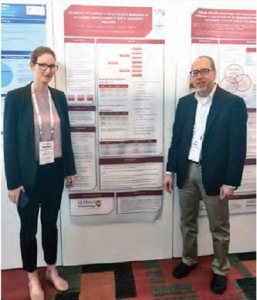
Introducing our 2019-2020 VCRC-VF Fellow
Stephanie Garner, MD
McMaster University in Hamilton, Ontario, Canada
Stephanie Garner, MD, MSc, FRCPC, developed an interest in vasculitis as an internal medicine resident at the University of Calgary in Alberta, Canada, while admitting a patient to its nephrology service. The patient had pulmonary renal syndrome—respiratory failure that involves bleeding in the lungs and kidney failure—due to ANCA-associated vasculitis.
“It was a life-changing event for this previously healthy patient,” Dr. Garner explained. “And this was an area of medicine where I wanted to make a difference.” (ANCA vasculitis, or anti-neutrophil cytoplasmic antibody vasculitis, is a group of diseases that affect the small blood vessels of the body.)
Dr. Garner is one of two physicians who received the 2020 Vasculitis Clinical Research Consortium (VCRC)-Vasculitis Foundation (VF) Fellowship Award. The VCRC-VF Fellowship is a mentored training program of up to two years for physician investigators who have a strong interest in vasculitis and wish to pursue specialized training in patient-oriented clinical investigation. (The other fellow, Alvise Berti, MD, of the University of Trento, Italy, will do his fellowship at the Mayo Clinic, Rochester, Minnesota. He will be featured in a future issue of the VF Newsletter.)
Dr. Garner’s 2020 fellowship is taking place at McMaster University in Hamilton, Ontario, Canada, where she completed a rheumatology fellowship in December 2018, participating in cutting-edge collaborative care for patients with vasculitis. “I realized what a complex and multisystem disease vasculitis is, and that it takes a team to care for these patients. I wanted to be part of that team,” she added. Dr. Garner joined McMaster University’s Division of Rheumatology as a clinical scholar in January 2019.
“Training young physicians in clinical care and conducting research in the vasculitis field is critical for the future of our patients,” said Joyce Kullman, VF Executive Director. “The VF is committed to helping fund fellowships.”
The VF has provided over $300,000 in matching funds to support fellowships, made possible through the generosity of donors and fundraising events. “We are grateful to the Haberman Family Foundation for their generous support of Dr. Garner’s fellowship,” Kullman added.
“My primary goal of the fellowship is to gain experience and exposure to as many patients with vasculitis as I [can] so that I develop a breadth and depth of knowledge in this area,” said Dr. Garner. This includes gaining expertise in the diagnosis and management of vasculitis patients and their disease. “My second goal is to collaborate with the vasculitis community and gather the skills to be an active and productive member of this community.”
Dr. Garner’s mentor is Nader A. Khalidi, MD, FRCPC, Professor of Medicine, McMaster University, and head of service, Rheumatology, St. Joseph’s Health Care System. “Dr. Garner has already brought her skills in rheumatology to vasculitis, and clinically has made a great impact on patient care, and has facilitated careful and urgent care for those in need,” he said.
During the one-year fellowship, which officially began in July 2019, Dr. Garner has been working on two research projects. “The first is looking at using large administrative databases to develop cohorts of vasculitis patients here in Canada,” she noted.
“The second is a project describing a collaborative subspecialist clinic as a model of care for vasculitis patients.” After completing her vasculitis fellowship, Dr. Garner plans to continue through McMaster University’s clinical educator track, pursuing a career as an academic rheumatologist.
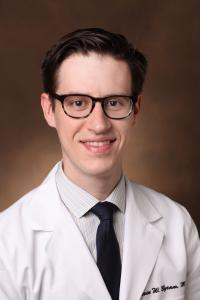 Introducing our 2017-2018 VCRC-VF Fellow
Introducing our 2017-2018 VCRC-VF Fellow
Kevin Byram, MD
Cleveland Clinic Center for Vasculitis Care and Research
Keith Byram, MD, graduated from the University of Alabama School of Medicine and completed his internal medicine and rheumatology training at Vanderbilt University Medical Center. Beginning in July 2017, he started a one-year vasculitis fellowship at the Cleveland Clinic Center for Vasculitis Care and Research. Dr. Byram’s fellowship has been supported by the Vasculitis Clinical Research Consortium (VCRC), the Vasculitis Foundation (VF) and Vanderbilt University Medical Center.
“Caring for patients with vasculitis has been a true pleasure,” said Dr. Byram. “The opportunity to guide someone and their family through a chronic disease with such devastating potential has been a humbling honor. With the advent of novel and repurposed therapies and treatment strategies, our ability to limit the serious nature of vasculitis has improved, but much still needs to be done.”
During his time as a vasculitis fellow, in addition to gaining advanced skills in the care of people with vasculitis, Dr. Byram will be continuing research that he began at Vanderbilt under the mentorship of Dr. Michelle Ormseth. His research project has focused on examining unique expression profiles of microRNA (mRNA) in patients with ANCA-associated vasculitis (AAV). mRNA is a molecule that silences certain genes.
“Identification of unique mRNA expression patterns in AAV could make diagnosis easier or help in monitoring of disease activity,” said Dr. Byram. “This study could provide further information about how and why AAV occurs and relapses, which in turn could lead to more targets for treatment.”
MicroRNA is already being tested in diseases such as cancer. Small studies have identified several candidates that seem to be expressed at higher levels in patients with AAV.
“I am grateful for the financial support both the VF and VCRC have made available to me to pursue another year of training in the field of vasculitis,” said Dr. Byram. “The foundational, professional, and mentoring relationships I create will serve me well as I work toward my goals.”
At the end of his fellowship, Dr. Byram will be returning to Vanderbilt to establish a vasculitis clinic.
Editor’s Update: Dr. Byram is now the Co-director of the Vanderbilt Vasculitis Clinic in Nashville, Tennessee.
 Introducing our 2017-2018 VCRC-VF Fellow
Introducing our 2017-2018 VCRC-VF Fellow
Kaitlin Quinn, MD
MedStar Georgetown University Hospital, Washington, D.C
Kaitlin Quinn, MD, is the recipient of the 2017 VCRC-VF Fellowship. She received her medical degree from New York Medical College in Valhalla, New York. She completed her internal medicine residency and a two-year rheumatology fellowship training program at MedStar Georgetown University Hospital in Washington, D.C. Dr. Quinn is currently serving as a junior faculty member in the Division of Rheumatology, Immunology and Allergy at Georgetown.
“Vasculitis initially sparked my interest in rheumatology,” she said. “I rotated through the rheumatology consult service as a medical intern. The most fascinating part of the rotation for me was the complexity of these patients.”
She sees many research and clinical opportunities in this area. The fellowship will help deepen her understanding of the disease and give mentorship opportunities needed to broaden her clinical skills and enable her to conduct investigational research.
PET Scans in Diagnosis and Treatment
One of Dr. Quinn’s goals is to look at how positive-emission tomography (PET) scans can impact the diagnosis and treatment of vasculitis. PET scans use a small amount of radioactive material attached to glucose to find areas of the body that are biologically active, such as inflamed vessels in the case of vasculitis.
Currently, it can be difficult to determine if a patient’s vasculitis is active. Normal laboratory values can be seen even when the disease isn’t in remission. The aim of this research is to give clinicians another diagnostic tool to help guide treatment decisions in patients with vasculitis.
“A key part of the fellowship is to allow further development of my clinical skills and management of vasculitis patients,” said Dr. Quinn. “The fellowship allows for professional growth and accruement of skills with the hope that I will eventually assume leadership of the vasculitis clinic at Georgetown and one day expand it to a formal vasculitis center that can participate in clinical trials.”
Dr. Peter C. Grayson is head of the Vasculitis Translational Research Program (VTRP) at The National Institute of Arthritis and Musculoskeletal and Skin Diseases, a part of the National Institutes of Health in Bethesda, Maryland. He is serving as Dr. Quinn’s mentor during the Fellowship.
Unique Fellowship
“There is a lot about Dr. Quinn’s fellowship that is unique,” said Dr. Grayson. “The NIH program frequently performs research studies on patients with vasculitis who otherwise receive clinical care in the vasculitis clinic at Georgetown run by Dr. Thomas Cupps. Dr. Quinn’s fellowship will further strengthen the collaboration between our institutes and will help her to expand vasculitis-focused research initiatives at Georgetown.”
Dr. Cupps is preparing to transfer patients to Dr. Quinn’s vasculitis clinic. The fellowship is a way to prepare Dr. Quinn to not only continue the clinic, but to build on Dr. Cupps’ work and elevate it to the next level as a vasculitis center.
“She will spend some of her time working at the VTRP, seeing patients and participating in research,” said Dr. Grayson. “This will give her more time to be a student of vasculitis on both the clinical and the research level.”
Dr. Quinn’s research projects should help enhance vasculitis treatment and research. Currently, imaging assessment of patients with large vessel vasculitis is difficult because there are no standardized guidelines.
“A major goal of Dr. Quinn’s project is to generate data that will inform the development of imaging studies guidelines in large vessel vasculitis,” said Dr. Grayson. “By studying the strengths and limitations of specific imaging modalities, including PET scans and angiography, we hope to provide guidance to physicians on how to use these tests effectively for clinical care purposes. We also want to test if imaging studies are useful as outcome measures in clinical trials.
The support of the VF gives us an opportunity to test how medications used to treat vasculitis affect both how a patient feels and how their blood vessels look on imaging studies.”
Editor’s Update: Dr. Quinn is now a Staff Clinician, Vasculitis Translational Research Program, National Institute of Arthritis and Musculoskeletal and Skin Diseases, National Institutes of Health.
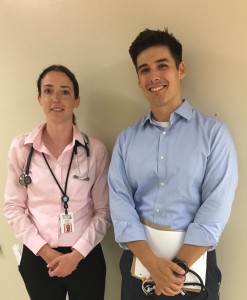 Introducing our 2016-2017 VCRC-VF Fellow
Introducing our 2016-2017 VCRC-VF Fellow
Jennifer Rodrigues, MD
McMaster University, Hamilton, Ontario Canada
The Vasculitis Foundation welcomes Dr. Jennifer Rodrigues, as our 2016-2017 VCRC-VF Fellow. Dr. Rodrigues completed medical school at the University of Calgary in 2011, her internal medicine training at McGill University in 2014, and a nephrology fellowship at the University of Toronto this past year. She will complete this fellowship under the direction of Dr. Michael Walsh, Associate Professor of Medicine and Clinical Epidemiology & Biostatistics at McMaster University, Hamilton, Ontario
Dr. Walsh said that he is particularly excited to be mentoring Dr. Rodrigues because she is bringing a stellar background in basic immunology and a longitudinal clinical experience to her new role.
“Dr. Rodrigues is highly regarded for her clinical skills, thoughtfulness with respect to her patient’s well-being and attention to detail. These qualities are complemented by her scientific curiosity and highly organized nature,” said Dr. Walsh. “Although I only recently started working with Dr. Rodrigues, her drive to develop the best evidence to guide the treatment of patients with vasculitis is obvious. With the help of the VCRC-Vasculitis Foundation award, Dr. Rodrigues is on the road to becoming a leader in vasculitis research and her contributions will undoubtedly improve the quality of care provided to patients.”
In the following interview with the Vasculitis Foundation, Dr. Rodrigues talked about why her particular focus on nephrology is such a critical area of research. She also shared why the VCRC-VF Fellowship is not only a professional opportunity for her, but believes it could yield valuable research insights that will help vasculitis patients in the future.
Briefly describe the focus of your work.
I am a nephrologist interested in glomerulonephritis, diseases that affect the filters of the kidneys, the second most common cause of kidney failure requiring dialysis. The kidneys are frequently affected by vasculitis and while there are treatments, including immunosuppressive and anti-inflammatory steroid medications, to initially control the disease and prevent flare-ups, we don’t know how long patients should remain on these medications.
The duration of treatment has to be balanced with the risk of infection, bone fracture, and the impact on a patient’s quality of life. I will study whether long-term treatment with very low doses of medications prevents flare ups of vasculitis without significant side-effects. Opinions about whether low-dose medications, particularly prednisone, work in vasculitis vary dramatically around the world so the information from this study will change how vasculitis is treated no matter what it shows!
Why is this important to people with vasculitis?
Most patients with vasculitis will receive prednisone through the course of their treatment. At high doses, prednisone can control the damage vasculitis causes but, it also increases the risk of infections, bone fractures, and may play a role in cardiovascular disease and has very obvious effects on patient’s quality of life. While most of these side-effects disappear at low doses for most patients, it is not clear whether they continue to reduce the risk of vasculitis flare-ups. Avoiding long-term use may reduce the risk of harmful side effects but it may also increase the risk of disease flare-ups and the damage to organs like the kidney.
How did you decide on your specialty?
My interest in nephrology began as a teaching assistant in physiology and was solidified during the early clinical rotations of internal medicine training where one of my first patients had kidney failure requiring dialysis. It is a diverse specialty combining various areas including electrolytes, dialysis, kidney transplant, glomerulonephritis, and immunology in daily practice. We look after a wide variety of patients, from the sickest patients in the intensive care unit to those in clinic who are living with kidney disease. Every day we are presented with new challenges and the opportunity for an important impact on patients’ lives.
What do you find most challenging about it?
I think the biggest challenge in nephrology is the need for more studies to better understand the complex diseases that affect the kidneys such as vasculitis, in order to determine the best treatments for our patients.
As a nephrologist, you are focused specifically on studying the impact of vasculitis on the kidneys. Tell us more about the research you will be doing into this area.
With the support of the Vasculitis Foundation, I intend to conduct a pilot clinical trial examining whether long-term low dose prednisone is effective at preventing relapse of ANCA-associated vasculitis and its impact on kidney function with a particular focus on the side effects of prednisone and its impact on patients’ quality of life.
I will study whether long-term treatment with very low doses of medications prevents flare ups of vasculitis without significant side-effects. Opinions about whether low-dose medications, particularly prednisone, work in vasculitis vary dramatically around the world so the information from this study will change how vasculitis is treated no matter what it shows!
Talk about how your research could potentially impact the way that patients are treated with prednisone in terms of risks vs. benefits to the patient.
Avoiding long-term use of prednisone may reduce the risk of harmful side effects but it may also increase the risk of disease flare-ups and the damage to organs like the kidney. My study will clarify the risks and benefits of low-dose prednisone which will ultimately change the way many patients around the world are treated. Importantly, this study will also help us understand the potential effects of low-dose prednisone in other inflammatory and kidney diseases.
You have said that glomerulonephritis (GN) is the next big development in our area of study. Please explain glomerulonephritis and why it needs greater research.
Glomerulonephritis (GN) is a complex and rare disease that is the second most common cause of kidney failure. Specialized clinics, as well as an increase in the amount of clinical research in this area will translate into improved outcomes. There are many types of GN in addition to vasculitis, and these patients frequently receive long-term immunosuppressive medications to control their disease.
Determining how long these patients should remain on immunosuppression once their disease is in remission in order to balance medication side effects and impact on patient’s quality of life with the risk of disease relapse is an important research question.
Personally, what does this VF Fellowship mean to you? How do the VF Fellowships advance our understanding of vasculitis?
This fellowship will provide me with the opportunity to improve the care provided to patients with vasculitis. I am fortunate to have many excellent mentors within the field of vasculitis and glomerulonephritis and to be among the many previous successful recipients of this fellowship.
The Vasculitis Foundation has been critical to representing patient interests, raising awareness about these diseases, and helping to set research goals.
What is the most rewarding about your work?
It is a privilege to look after patients with kidney disease as we are often able to treat them when they are very ill in the hospital and then follow them over time in the clinic after they improve. We also look after a wide variety of patients of all ages and with a variety of conditions. We see patients with very aggressive types of vasculitis that can cause kidney failure and to be able to offer effective therapy is very rewarding.
Amy Archer, MD, PhD
University of Pennsylvania 2016-2017
Medha Soowamber, MD
University of Toronto 2015-2016
Natasha Dehghan, MD
University of Pennsylvania 2014-2015
Rennie Rhee, MD, MSCE
University of Pennsylvania 2014-2016
Elizabeth Brant, MD
University of North Carolina, Chapel Hill 2012-2014
Christian Pagnoux, MD, MPA
University of Toronto 2010-2012
Tanaz Kermani, MD, MS
Mayo Clinic 2010-2011
Atul Khasnis, MD, MS
Cleveland Clinic 2009-2010
Eamonn Molloy, MD, MS, MRCPI
Cleveland Clinic 2007-2008
Peter Grayson, MD, MS
Boston University 2006-2008
Francisco Silva, MD, MS
Mayo Clinic 2006-2008
Gunnar Tomasson, MD, PhD
Boston University 2006-2008
Alicia Rodríguez-Pla, MD, PhD
Johns Hopkins 2005-2007
Alfred D. Mahr, MD, MPH, PhD
Boston University 2005-2007
Curry Koening, MD, MS
Cleveland Clinic 2005-2007

